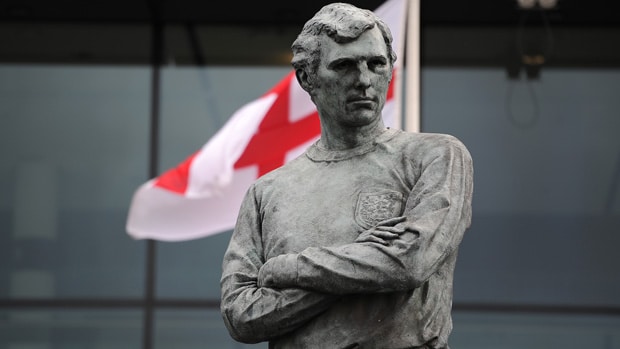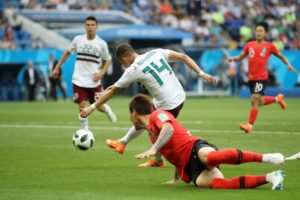BBC World News sports reporter PIERS EDWARDS travelled to Accra, Cairo and back to London, to uncover the story behind the African boycott of the 1966 World Cup.
Fifty years ago this month, the 1966 World Cup took place in England – providing the host nation with the only major silverware in its history.
The tournament is most famous for England’s controversial goal in the final (did it cross the line?), as well as the stellar displays of Portuguese star, Eusebio, and North Korea, the surprise team of the tournament.
But there’s an aspect to the tournament that has long been forgotten – which is that Africa boycotted the finals, the only continent ever to do so.
It cried foul after FIFA ruled that the continents of Africa, Asia and Australia would have to fight for just one World Cup place between them. By contrast, Europe had ten places at the finals alone – so was it any surprise when Africa kicked off?
Driven by the euphoria sweeping the continent as a number of countries became independent, a proud Africa took FIFA to task. But the game’s world governing body refused to change its stance – even though it admitted, in internal memos, that the African complaints were ‘reasonable’.
For ‘Missing the World Cup’, a documentary airing on BBC World News and BBC World Service, I travelled to meet those who remember the boycott well – especially those close to its two main protagonists.
They were Confederation of African Football administrators Ohene Djan (Ghana) and Tessema Yidnekatchew (Ethiopia). Both men died in 1987 but Djan’s wife and a long-time colleague of Tessema bring their actions to life. Ironically, Djan’s stance was denying his own homeland the prospect of appearing at the finals as there was no stronger team in Africa in the mid-sixties than Ghana themselves.
African champions in 1963 and 1965, the Black Stars also reached the quarter-finals of the 1964 Olympic Games. Several players still survive and I interviewed two of them in the Ghanaian capital Accra – both of whom are now, coincidentally, reverends.
As we sat discussing ancient football history in his rooftop apartment, Reverend Kofi Pare – once a goal-scoring winger – told me that it was a major regret to miss the World Cup, especially when the players saw its standard.
‘After we had been watching the World Cup, we knew we could have done better,’ he laments.
His former colleague, Osei Kofi, known as ‘The Wizard Dribbler’, had a different stance however.
‘We should have regretted not playing in the World Cup but because of the treatment – and Africa is bigger than Europe you know – it was a cheat,’ he told me.
The injustice aside, the decision to force the best African team to play off against its Asian and Australian counterparts had major financial and logistical challenges. Since all African teams were then amateur and seriously lacking in resources, how were they supposed to fund the onerous cost of a trip to Asia for a match when they could barely cover the cost of travelling to a nearby African nation?
And why should they have to travel further distances and play more matches for just one World Cup places when European teams were fighting for considerably more, yet while travelling far less and far more economically?
In October 1964, after issuing an ultimatum for more places that FIFA ignored, Africa announced its boycott of the World Cup.
But, in its own way, Africa did have its own players at the World Cup for Eusebio, who was born in Mozambique, then a Portuguese colony, finished as the top scorer at the finals.
Meanwhile, the team that made it through African/Asian/Australian qualifying – North Korea – showed what a supposedly-minnow nation could do, sending Italy home and almost knocking out the Portuguese. In February 1968, FIFA decided – in a unanimous vote – to give both Africa and Asia a place of their own at the following World Cup.
The boycott had worked.
Africa has been represented at every World Cup ever since, largely thanks to the time when the continent was not afraid to stand up to global football’s rulers.
*Missing the World Cup will air during Focus on Africa on BBC World News (DStv 400) on Tuesday 12th July at 19:30. It will also air on BBC World Service on Tuesday 12th July at 04:30 and 16:00.
About Piers Edwards
Born in Wimbledon, his enthusiasm for the global game was already sizeable before the tragic demise of his hometown’s football team. Having covered football in over 50 countries, Piers has been working in the BBC’s African sports section since the early noughties, recently spending three years in Africa to report on the run-up to the continent’s first World Cup.





